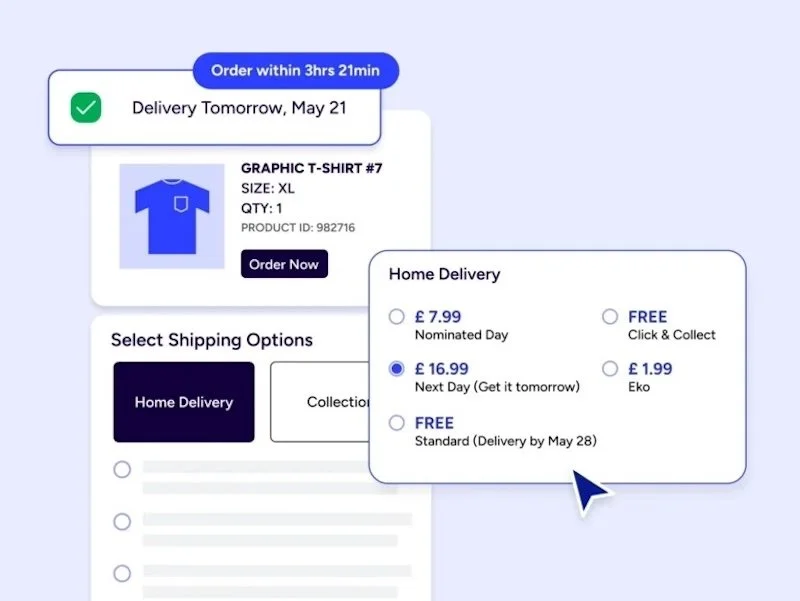Why customer reviews can make or break a brand
In an increasingly digitalised world of commerce, where brands compete for attention on a daily basis, trust is the most important currency.
Word of mouth has long been a key contributor to boost brand awareness. Consumers exchange information, compare, and question offerings. Now this behaviour has shifted to digital commerce, where customer experience and reviews can make or break a brand.
Today, reviews have become a decisive factor in purchasing decisions. Within seconds, consumers can find out about a brand's products or services and compare offers. Just a few words from a fellow user who is also looking for something specific can make the difference between buying and not buying.
But why do they have such a strong influence on the perception of a brand, and how can companies use them strategically to build long-term trust?
The Value of Customer Reviews vs. Expert Opinions
Customer reviews are subjective experiences and often focus on details that aren't relevant to all potential buyers. Still, they give insight into experiences with company processes, such as delivery times, customer support, quality features, etc., which can influence potential customers because these experiences help predict the likelihood of their own.
In addition to customer experiences, however, expert opinions are a decisive factor in determining the quality and trustworthiness of a product or service. Expert opinions are particularly relevant in sensitive industries such as online gambling, healthcare, and beauty.
Especially when a lot of money is at stake, as in the world of gambling, customers like to refer to experts. These reviews not only evaluate the user-friendliness of a platform but also examine the technical and legal aspects of the respective brand.
Gambling expert Matt Bastock, for example, analyses the UK's best sites according to key criteria such as secure payment methods, smooth mobile apps, and officially certified licences. Such professional reviews help users distinguish reputable providers from fake platforms or scams, protecting them from costly mistakes.
Expert opinions also play a central role in areas such as healthcare and beauty. Only specialists can reliably assess which ingredients in supplements or creams are actually effective and safe, and which products do not deliver on their promises. While customer reviews provide authentic impressions of consistency, smell, or skin feel, scientifically tested analyses add facts to these subjective experiences.
Photo credit: Unsplash.
Authenticity is The Key
While advertising highlights positive aspects and typically presents products or services as “the best” without acknowledging possible flaws or disadvantages, reviews reveal what lies behind the facade. Today’s customers are aware of marketing tactics and therefore tend to believe the words of other customers rather than advertising claims.
Customer reviews provide information about specific experiences and thus provide a solid basis for decision-making. According to a survey by BrightLocal, consumers value facts and objectivity. When conducting their research, they read both positive and negative reviews in order to form their own opinion.
In addition to promotional videos and content that companies post about their products and services, 31% of respondents say they also watch video content from everyday people talking about the respective businesses and their products and services.
Authenticity builds trust. For companies, this means rethinking marketing strategies and integrating customer reviews as part of their communication strategy. Instead of cultivating a perfect but distant brand image, companies should make genuine customer voices visible, respond constructively to criticism, and disclose processes transparently.
Feedback is not only an analysis tool that helps tailor the brand to customer needs, but also transforms customers into credible brand ambassadors who attract new customers.
Engaging in Public Concerns is essential
In addition to presenting products or services authentically, customers value companies that take a transparent stance on social, political, and environmental issues. Staying out of discussions about political developments and employee fairness can reflect poorly on brands.
According to Trustpilot, honesty is the best policy for brand marketing. The survey shows that more than 94% of consumers state that openness and honesty on these issues contribute to their purchasing decisions.
A further 51% said they would not buy from brands that treat employees or suppliers unfairly. On the other hand, openness can also be exaggerated, and brands that exaggerate in their communications, engage in greenwashing, or promise too much in their advertising are rejected by almost half of those surveyed (49%).
Customers value a company's ethical, moral, and political stance and decisions, and make extensive use of reviews and online discussions to determine whether a company is worth their money. A brand no longer stands alone for what it sells, but inspires trust by engaging in issues that concern society on social media and responses to reviews.
Conclusion: Reviews Drive Revenue
All factors indicate that reviews contribute to purchasing decisions. A study by Harvard Business School shows that just one additional star rating on Yelp can translate to anywhere from a 5 percent to 9 percent effect on revenues.
Smaller brands that have not been on the market for long benefit particularly from reviews, as these build trust and attract new customers. This applies to all industries, but especially to restaurants and online services such as gaming, as potential customers have to decide whether the service meets their expectations based on limited information.































Continue reading…